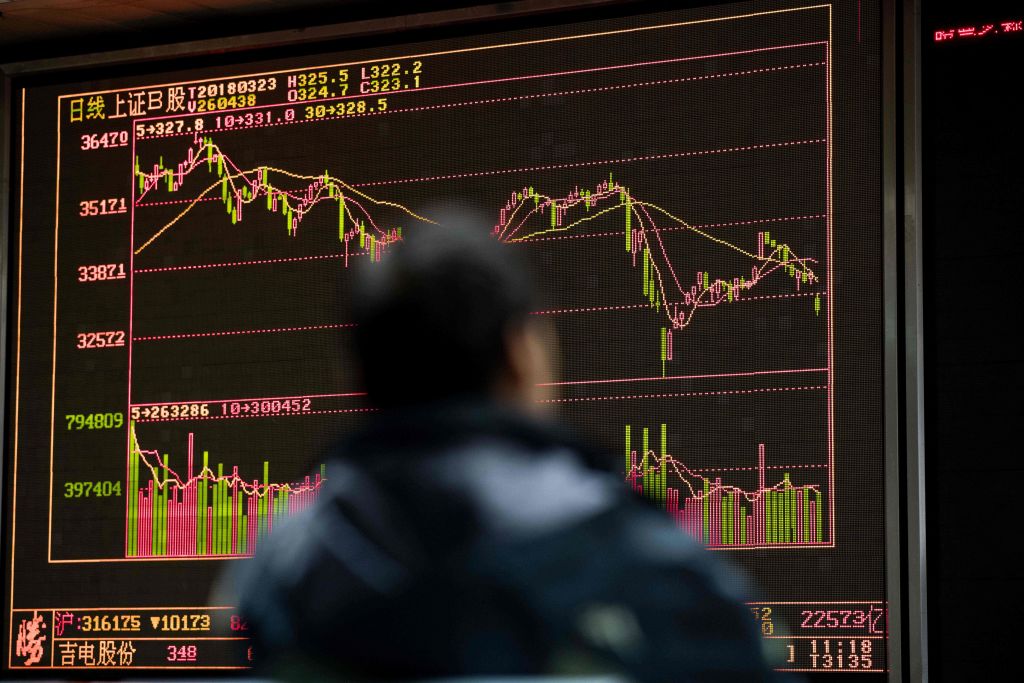China counters Trump by threatening retaliatory tariffs on U.S. pork, steel pipe, other goods


A free daily email with the biggest news stories of the day – and the best features from TheWeek.com
You are now subscribed
Your newsletter sign-up was successful
Early Friday, China's Commerce Ministry announced tariffs on $3 billion worth of U.S. pork, aluminum scrap, apples, steel pipe, wine, ethanol, and other goods, saying President Trump's tariffs on imported steel and aluminum are "typical unilateralism and protectionism" and set a "very bad precedent." "China does not want to fight a trade war, but it is absolutely not afraid of a trade war," the Commerce Ministry said. "We are confident and capable of meeting any challenge. It is hoped that the U.S. side will be able to make a swift decision and not to drag bilateral economic and trade relations into danger."
China separately criticized Trump's announcement Thursday of tariffs on up to $60 billion in Chinese products, prompted by complaints of government-aided intellectual property theft. Beijing did not say how it would respond to that move, but the $3 billion in threatened tariffs announced Friday don't include items that would really hurt U.S. producers. "All the products on the list are small potatoes, and the real important ones are U.S. farm products like soybeans and sorghum," a government adviser in Beijing told The Wall Street Journal. "China is keeping its powder dry."
Global stock markets reflected the widespread unease at the looming trade war, with the Dow Jones Industrial Average closing down more than 700 points, or almost 3 percent, on Thursdays and Asian markets tumbling 3 percent in early trading Friday. A trade war with China would hurt U.S. consumers.
The Week
Escape your echo chamber. Get the facts behind the news, plus analysis from multiple perspectives.

Sign up for The Week's Free Newsletters
From our morning news briefing to a weekly Good News Newsletter, get the best of The Week delivered directly to your inbox.
From our morning news briefing to a weekly Good News Newsletter, get the best of The Week delivered directly to your inbox.
China did not say when its 25 percent tariff on U.S. pork and recycled aluminum and 15 percent tariff on the other goods might kick in, leaving time for negotiations. China exports only a small amount of steel and aluminum to the U.S. Late Thursday, the White House announced it will exempt allies like the EU, Brazil, South Korea, Mexico, Canada, and Australia from the steel and aluminum tariffs — accounting for two-thirds of U.S. steel imports and half of imported aluminum — until at least May 1.
A free daily email with the biggest news stories of the day – and the best features from TheWeek.com
Peter has worked as a news and culture writer and editor at The Week since the site's launch in 2008. He covers politics, world affairs, religion and cultural currents. His journalism career began as a copy editor at a financial newswire and has included editorial positions at The New York Times Magazine, Facts on File, and Oregon State University.
-
 The Mandelson files: Labour Svengali’s parting gift to Starmer
The Mandelson files: Labour Svengali’s parting gift to StarmerThe Explainer Texts and emails about Mandelson’s appointment as US ambassador could fuel biggest political scandal ‘for a generation’
-
 Magazine printables - February 13, 2026
Magazine printables - February 13, 2026Puzzle and Quizzes Magazine printables - February 13, 2026
-
 Heated Rivalry, Bridgerton and why sex still sells on TV
Heated Rivalry, Bridgerton and why sex still sells on TVTalking Point Gen Z – often stereotyped as prudish and puritanical – are attracted to authenticity
-
 TikTok secures deal to remain in US
TikTok secures deal to remain in USSpeed Read ByteDance will form a US version of the popular video-sharing platform
-
 Unemployment rate ticks up amid fall job losses
Unemployment rate ticks up amid fall job lossesSpeed Read Data released by the Commerce Department indicates ‘one of the weakest American labor markets in years’
-
 What a rising gold price says about the global economy
What a rising gold price says about the global economyThe Explainer Institutions, central banks and speculators drive record surge amid ‘loss of trust’ in bond markets and US dollar
-
 US mints final penny after 232-year run
US mints final penny after 232-year runSpeed Read Production of the one-cent coin has ended
-
 Warner Bros. explores sale amid Paramount bids
Warner Bros. explores sale amid Paramount bidsSpeed Read The media giant, home to HBO and DC Studios, has received interest from multiple buying parties
-
 Gold tops $4K per ounce, signaling financial unease
Gold tops $4K per ounce, signaling financial uneaseSpeed Read Investors are worried about President Donald Trump’s trade war
-
 Electronic Arts to go private in record $55B deal
Electronic Arts to go private in record $55B dealspeed read The video game giant is behind ‘The Sims’ and ‘Madden NFL’
-
 New York court tosses Trump's $500M fraud fine
New York court tosses Trump's $500M fraud fineSpeed Read A divided appeals court threw out a hefty penalty against President Trump for fraudulently inflating his wealth
